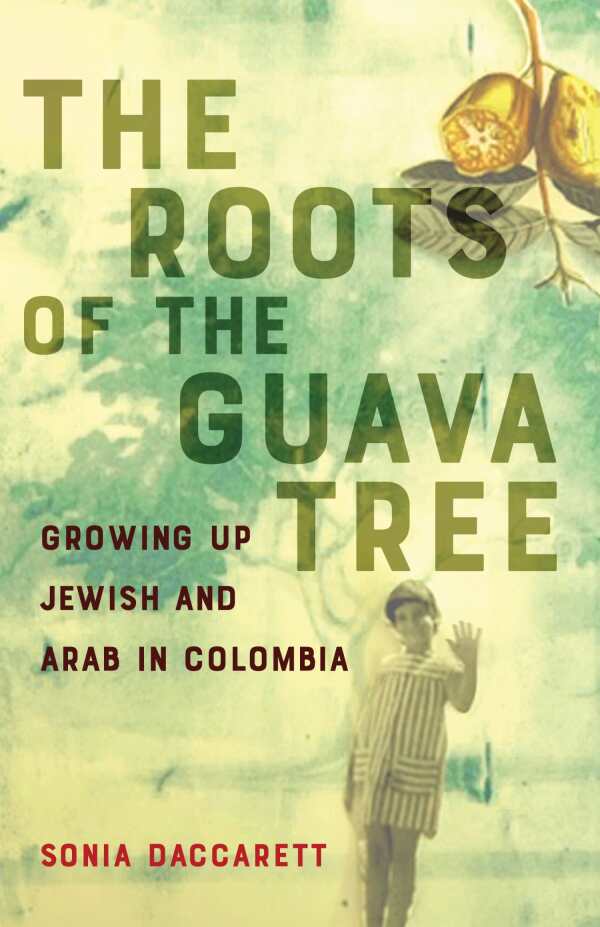The Roots of the Guava Tree
Growing Up Jewish and Arab in Colombia
About an intercultural childhood impacted by international tensions, The Roots of the Guava Tree is a revealing memoir.
Sonia Daccarett’s moving memoir The Roots of the Guava Tree is about being the daughter of a Jewish mother and a Palestinian Christian father in Colombia.
Daccarett’s parents, Riva and Naím, married in 1964. Decades earlier, Riva’s mother and father had immigrated to Bogotá to escape European antisemitism, while Naím’s family left Bethlehem in the late 1800s seeking new business opportunities. Intelligent, forthright, and often exasperated by Colombia’s patriarchal culture, Riva is recalled as a lover of books and classical music who strove to raise her daughters with progressive values. Naím is portrayed with more nuanced reserve; tall and charming, with “Levantine dark eyes,” he disliked “harsh truths” and tended to keep most of his opinions to himself.
The couple’s rare union prompted anxiety among their relatives. Still, Daccarett and her sister grew up close to both sides of their family, navigating generational challenges like disapproval of “bossy,” independent girls while learning cultural elements, including Yiddish phrases, stories about socialism, and harrowing memories of the Holocaust. The kitchen of their home was used to prepare kibbeh and gefilte fish alike. The neutrality of Daccarett’s upbringing was challenged by the 1982 Lebanon War, though, after which her “humanist” parents became “tribal” and polarized.
Beyond its observations of Daccarett’s distinctive childhood, the book is enhanced by evocative details of life in 1970s and 1980s Colombia. From memories of tropical landscapes to chilly Andean heights, Daccarett conveys an innate and cherished connection to her homeland. She also recalls learning guitar “rhythms like joropo and bambuco,” while her music teacher sipped “tinto” coffee beneath a mango tree. Later, with detached yet penetrating anguish, she relates the impact of Colombia’s drug-cartel violence, including increased crime, bombings, kidnappings, assassinations, and even the descent of military helicopters upon her high school.
Longing to escape Colombia’s turmoil and her parents’ marital strife, Daccarett chose to attend college in the United States. Her fledgling independence is detailed with poignant humor and melancholy; amid the airport bustle, her family waited for an extended period for her flight to leave, having arrived “too early” in a country “where everyone else is habitually late.” While her father pretended to be “jovial” and asked if she wanted candy for her trip, Daccarett felt a churning of “acid and nerves” and tried not to cry. And though Daccarett’s need to forge an identity beyond her conflicted heritage is clear, the book’s immersive grounding in family and native connections intensifies this unhappy yet liberating conclusion.
Working toward a bittersweet conclusion, the engrossing memoir The Roots of the Guava Tree is about cultural and family intricacies in a vibrant, troubled setting.
Reviewed by
Meg Nola
Disclosure: This article is not an endorsement, but a review. The publisher of this book provided free copies of the book and paid a small fee to have their book reviewed by a professional reviewer. Foreword Reviews and Clarion Reviews make no guarantee that the publisher will receive a positive review. Foreword Magazine, Inc. is disclosing this in accordance with the Federal Trade Commission’s 16 CFR, Part 255.

